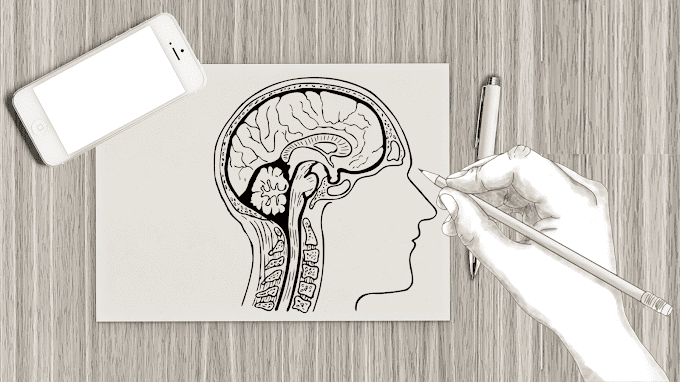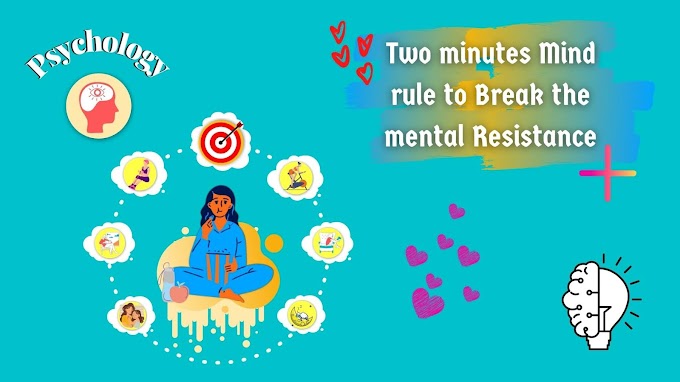What is Serotonin? Everything you should know
Serotonin also called 5-hydroxytryptamine (5-HT) a neurotransmitter that communicates information in the Brain and other parts of the Body.
It is also called as a good source of well being and happiness & is derived from amino acids.
To synthesize serotonin, the tryptophan1 amino acid is converted into 5-hydroxytryptophan, and 5-HTP is converted to serotonin.
It is located in the central nervous system, digestive system, and blood platelets.
Production of Serotonin is through neurons
found in Raphe Nuclei along with part of the Brain.
Axons of these neurons reach every pathway of the central nervous system from the spinal cord and cerebellum.
Serotonin Receptors have 7 different families
They differ from each other from the substances that bind them, distribution, and the effects they mediate.
Out of 7 6 families of receptors are G - Protein-coupled receptors and the other consist of ligand-gated ion channels.
There are 14 receptors subfamilies of 7 serotonin receptor families.
Serotonin is removed from the synaptic cleft by a protein transport which is also called the serotonin transporter or SERT.
As serotonin provides wellness and happiness, this is the reason that various antidepressants cause serotonin levels to rise.
The role played by serotonin in the body is very complex and depression is not likely to be a single serotonin deficiency.
What is the Effect of Serotonin on Depression?
Serotonin plays an important part in daily activities like sleep2, awake, eating, happiness, and dream.
When people have a deficiency of serotonin in their brains, they have a feeling of sadness, anxiety, and worthlessness.
So people decide to go with antidepressants to get relief from sadness and depression.
Let’s study this phenomenon with a person feeling with depression and an ordinary person.
Refer to the below-mentioned Pixel for more clarification of the text provided below.
The gap between the Pre – Synaptic neuron and the Post – Synaptic neuron is called Synapse.
These neurotransmitters found at the nerve endings release serotonin into the Synapse.
When the serotonin is present in synapse it will either bind it with receptors present on the postsynaptic neuron.
And few of them will get reabsorbed with the serotonin reuptake transporters present on the surface of presynaptic neurons.
Now when enough serotonin is passed into the postsynaptic nerve, it starts creating a good mood and happiness in a person with more positive effects.
Now People suffering from depression have no or such little amount of serotonin to be received by the postsynaptic neuron.
This long-run schedule of such insufficient serotonin starts creating prolonged sadness and finally leads to depression.
How do Antidepressants (SSRI) work?
This is an action of Selective Serotonin Reuptake Inhibitors. With time people are happy and also get sad as this is a part of life.
Some people with a sad mood deal with their own work, college, and ignore their sadness and carry on.
But few people experience depression for a long time because of prolonged sadness.
Such type of people finds it hard to do daily activities and not able to enjoy any small things in life.
Depression can be because of many factors depending upon the individual.
This can fall down into biological factors and the role of neurotransmitters.
A depleted amount of neurotransmitters send
information between different parts of neurons in the brain such as serotonin
and noradrenaline that influences mood.
The use of SSRI as an Antidepressant: -
One type is block reuptake of serotonin called SSRI. The reason they are called reuptake inhibitors is within its name.
The main effect is to reduce or block the reabsorption or reuptake of serotonin by the presynaptic neuron.
Here comes the role of SSRI i.e. Selective Serotonin Reuptake inhibitors.
SSRIs will travel from these neurons to the synapse and it will attach or get bind themselves with the serotonin reuptake transporters on the surface of the presynaptic neurons.
This will block the serotonin being sucked back by the presynaptic neurons.
This will allow and make more serotonins presence in the Synapse area.
This will now allow the serotonin to accumulate on the receptors present on the postsynaptic neurons.
This
antidepressants will make the person happy who is suffering from depression.
Uses of Serotonin in Body
In the digestive system, it helps with making the intestinal muscles smaller that helps food to move in the system.
It protects from signal pain and nausea.
If there is any poisoning in the food, more serotonin is released that moves the food faster through the digestive system.
This process can go with vomiting and frequent potty which are symptoms of diarrhea.
Serotonin is also stored in Blood platelets, so when a blood vessel gets damaged, platelets arrive blocking the breakage.
These platelets release serotonin that
helps blood vessels to narrow so it stops or slows down the loss of blood.
Lack of serotonin may affect sleep and appetite in the body & its low-level lead to depression & anxiety.
It
also helps to regulate body temperature and smooth breathing.
Serotonin promotes sleeping that helps with the increase in cortisol, maintain blood pressure and other sleeping problems.
Depression can be controlled up to an extent with the presence of serotonin in the Synapse.
What is Serotonin Syndrome?
This condition occurs because of the drugs or tablets that are taken to increase serotonin levels.
These types of drugs can be illicit drugs (a combination of 2 drugs), Celexa, Zoloft, antidepressants, Effexor, and tablets for dietary purposes.
Serotonin syndrome produces a variety of symptoms depending upon the severity.
Side Effects of Serotonin Syndrome are: -
- Diarrhea
- High Blood Pressure
- Fluctuations in heartbeat
- Anxiety
- Irritability
- Low thinking capacity
- Nausea
What are the Risks with Shortage of Serotonin in the body?
The long term shortage of serotonin will cause prolonged sadness resulting in depression
- Irregular and a disturbing pattern in sleep (Insomnia3)
- Affect Circadian rhythms
- Reduced interest in sex
- Low immunity and tiredness
- Low energy for performing on work
- Constipation and acidity
- Anxiety and stress
- Feeling of irritation and day time sleepiness
- Inadequate sleep can disturb blood pressure creating more chances for cardiac arrest.
- Lack of serotonin can reduce Cortisol that promotes freshness when woke up in the morning
- Low thinking capacity
- Frequent mild headaches
- Unconsciousness with stroke
- Disturbed blood flow in case of internal injury
What Foods are Rich in Serotonin?
Tense Health never recommends getting addicted to medicinal drugs unless consulted by a Doctor.
When nature has provided humans with everything, why should we not make use of it?
In old times when medical science was not that developed people use to follow natural food habits to avoid diseases.
It's said prevention is better than cure.
This is because there are few things you have to add to your regular diet which will avoid any mishap.
Once a person is admitted to the hospital there are many things that start cutting his life from his health to family pocket.
So trying out foods provided by mother earth will definitely minimize hospital visits.
Remember Tryptophan4is important in producing Serotonin, and so are the foods related with it.
Follow
the below list is high in Serotonin and is available at your home,
whichever the sweet country you are living in.
- Pineapple
- Cheese
- Milk
- Chocolate
- Wheat Bread
- Walnuts
- Banana
- Rice
- Fish - Salmon
- Eggs - White
- Almonds
- Turkey
- Chicken
White Rice carries a disadvantage of weight loss5, so try out with brown rice.
Egg Yolk (Yellow colored) contains more heat and is the main problem for acidity, so try eating white.
So the Bottom line is: -
Serotonin shortage can have disturbed sleep R1 patterns & lead to insomnia6.
Natural foods can increase serotonin levels in the body.
Antidepressant SSRI can make serotonin pass through postsynaptic neuron that makes the good mood and avoids depression.
Serotonin improves brain function7and gives more positive energy to work.
The Depression
cure – The 6 step program to beat depression without drugs









0 Comments
Please do not enter any Spam Link or spam content that affects our society